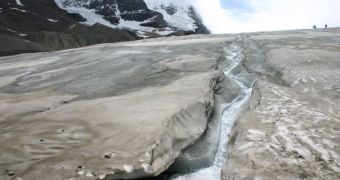Studies on the origins of Homo sapiens have revealed that our species most likely appeared in tree-dotted savannas, somewhere in central-eastern Africa. But a new proposal says that our ancestors may have evolved on the banks of major rivers as well.
The fact that rivers played an important role in human history is undeniable. They provided the first natural roads and access ways into territory that was otherwise nearly impossible to get to. At the same time, they facilitated communications between various settlements.
As such, it's no wonder that the first major human civilizations appeared along the banks of large rivers, including but not limited to the Tigris, the Euphrates, Ganges and the Nile. This had some experts thinking that maybe our species evolved in the same areas as well.
Even if this idea does not pan out as its proponents would have it do, the fact remains that it proposes certain environmental forces that may explain why we gained an upright walk, while other primates continued to go on all fours.
The very origin of the human lineage was shaped by these factors, and researchers dwelling into the issue suspect that we've only scratched the surface of the complex interplay of factors that eventually led to our current state of development.
This proposal exploits data obtained from digs carried out in Aramis, Ethiopia, near the location where our oldest known ancestor, the 4.4-million-year-old Ardipithecus ramidus called Ardi, was discovered.
Scientists discovered that the site contained layers of sandstone and other sediments, indicating the presence of streams and rivers as much as 390 meters (1,280 feet) wide. Additional investigations determined that the environment was most likely a grassy savanna, rather than a jungle.
“Great rivers such as the Nile and Ganges have been very important in our history, and we now find that rivers might have also helped play a key role at the dawn of humanity,” University of New Orleans geologist and study researcher Royhan Gani tells LiveScience.
Details of the new study were published in the December 20 online issue of the top scientific journal Nature Communications. The team says that it plans to conduct additional studies to verify its hypothesis, and maybe even determined why the rivers or streams dried out.

 14 DAY TRIAL //
14 DAY TRIAL //